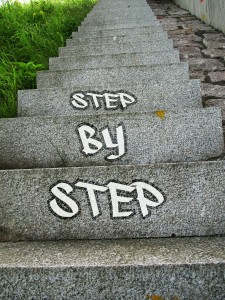Decluttering – a Healthy Habit

Too much STUFF!
Our world has become increasingly consumerist and goods are cheaper than ever which often means our houses are brimming with possessions. But are all these possessions making us happy? In fact, clutter prevents us from enjoying our homes by making the upkeep harder and more stressful. More and more people are choosing to decrease the number of possessions and declutter their houses in order to live a simpler and more relaxed life. That reduces stress and helps make us healthier.
Starting Out
Beginning decluttering can be daunting. But look at it this way – it took a long time to amass all the clutter so you can’t expect to get rid of it all in one manic session. The key to decluttering is doing short, manageable sessions over a period of time. Decide how much time every day you can dedicate to the task but don’t get carried away and try to do everything at once. Sometimes it helps to just start with one small area of a room like a cluttered shelf or cupboard in your kitchen. Doing a bit at a time is satisfying without being daunting and doing it that way helps to develop the habit of decluttering which is a powerful motivational tool to keep you doing a little each day.
Essentials
Before you start you should arm yourself with some essentials to make the task easier. Large bin bags, a good cloth, a spray cleaner, labels and a marker. You can buy any cleaner you like but I prefer using a natural cleaner – vinegar. I decant it into a spray bottle and use as I would any cleaner.
Emotions
Decluttering can be suprisingly hard and emotional. It is hard to let go of our posessions. Some people fear they may need the item in the future. To help make the decision a bit easier ask yourself a few key questions:
1) Do you really love the item? If you really love an object and it means something to you then keep it.
2) Has the object been used recently – certainly within the last year if not more recently. If not, get rid of it. I was given a pasta maker as a wedding present a decade ago and had never used it. Not once! Still I kept it, using up space on my kitchen counter ‘just in case’! Let me tell you, if you haven’t used something in 10 years you aren’t going to use it. I finally let it go and gave it to a charity shop – so the charity benefits and someone who actually wants to make their own pasta benefits!
3) Is the object broken? This is a no-brainer. If it’s broken throw it away and the pieces that go with it. I know someone who has a drawer with bits from old kitchen equipment, long since defunct and discarded. The pieces don’t fit any current machine and are not likely to. Have you got anything like that that could be thrown out?
Getting It OUT!
This is where your bin bags and markers come in as you label things to “keep”, “give away” or “chuck away”. You could also sell items on eBay (for example) if you prefer to try to make a little profit on your decluttering. If you are having a hard time emotionally deciding on getting rid of a particular item, put it in a bag and write the date on a label. When you come back to that bag in a few weeks or months time, if you don’t remember what is in it, then don’t open it, just chuck it.
Make It A Habit
It is important to declutter a little at a time but regularly. Even 10 to 30 minutes can make a big difference especially when done on a daily basis. 30 minutes spent clearing out a cupboard will actually save you time once it’s done and you no longer have to hunt through clutter and junk for the item you want. Once you set aside a bit of time each day to declutter you will be amazed at the difference to your house and your sense of wellbeing and enjoyment of your space.